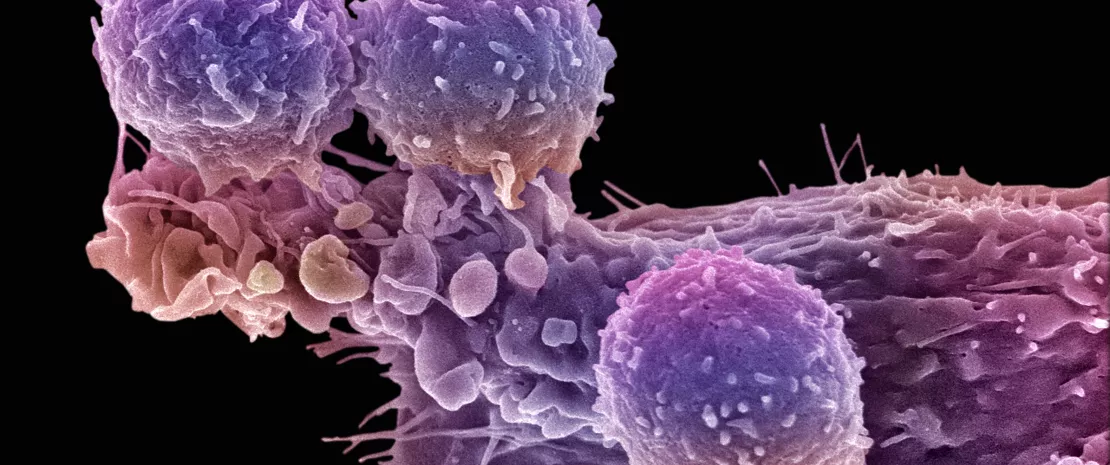Immunotherapy and the gut microbiota of elderly people: a strong anti-cancer alliance
Fecal transplantation improves the efficacy of immunotherapy, especially when the donors are seniors in good health. This finding may change current practices, with younger donors favored at present.
Lay public section
Find here your dedicated section
Sources
This article is based on scientific information

About this article
Although immunotherapy has revolutionized cancer treatment, its effectiveness varies greatly from one patient to the next. The gut microbiota seems to be involved in outcomes, with gut microbiota composition thought to modulate immune responses to tumors. Various manipulations of the gut flora have been explored in recent years, among them fecal microbiota transplantation (FMT). A counter-intuitive Chinese study 1 has shown that the microbiota of elderly donors may be particularly beneficial when it comes to immunotherapy responses.
1/6 Cancer is one of the world’s leading causes of death, accounting for nearly 10 million deaths in 2020, i.e. almost one in six. ²
Better results in elderly patients
To reach this conclusion, the researchers first carried out a meta-analysis of 25 studies involving 2,985 patients. They found that elderly cancer patients respond better to immunotherapy and have a longer life expectancy after treatment. A regression analysis even showed a quasi-linear relationship between age and progression-free survival. The pivotal age is sixty: before this age, the younger you are, the poorer the results; whereas after this age, the older you get, the more the results exceed those observed on average.
The immunity avenue
To understand the underlying mechanisms, the researchers turned their attention to the immune system, the target of immunotherapy. They showed that aging is accompanied by increased immune dysfunction and what they describe as a depletion of T cells over time. These age-associated T cell alterations could be mediated by the gut microbiota: an FMT of gut microbiota from elderly donors improves responses to immunotherapy, regardless of the recipient’s age.
- breast cancer (2.26 million cases)
- lung cancer (2.21 million cases)
- colorectal cancer (1.93 million cases)
- prostate cancer (1.41 million cases)
- skin cancer (non-melanoma) (1.20 million cases)
- stomach cancer (1.09 million cases)
- lung cancer (1.80 million deaths)
- colorectal cancer (916,000 deaths)
- liver cancer (830,000 deaths)
- stomach cancer (769,000 deaths)
- breast cancer (685,000 deaths)
Which bacteria?
Which gut bacteria promise the best response to treatment? Those present in an (sidenote: Enterotype A specific gut bacterial composition type in humans, similar to blood groups. Three distinct types have been identified in humans, characterized by a dominance of either Bacteroides, Prevotella, or Ruminococcus. ) that tends to become richer with age, characterized by Bacteroides, Clostridiales, Bilophila, and Faecalicatena.
A series of experiments on a mouse model confirms the potential of these bacteria: fecal transplantation of this specific enterotype, whether from an elderly donor or a young donor (young people also possess this enterotype, but in less abundance), modifies the gut microbiota of recipient mice and improves their response to immunotherapy (the tumor grows less in weight and volume). How? By boosting T cell cytotoxicity.
These findings pave the way for personalized cancer immunotherapy strategies based on gut microbiota profile. They also highlight the value of the enterotype specific to healthy seniors in the case of FMT.








